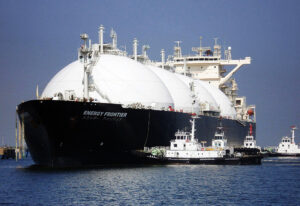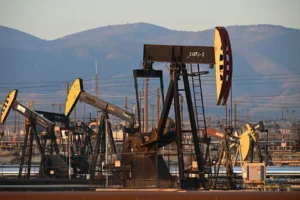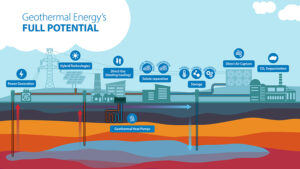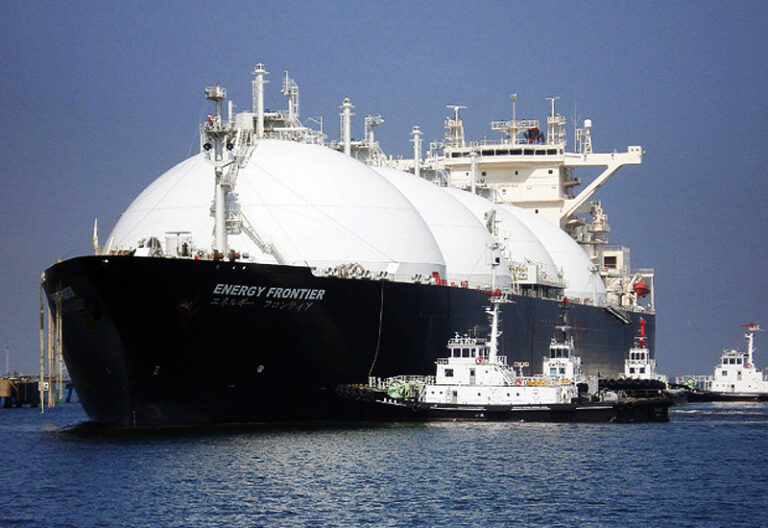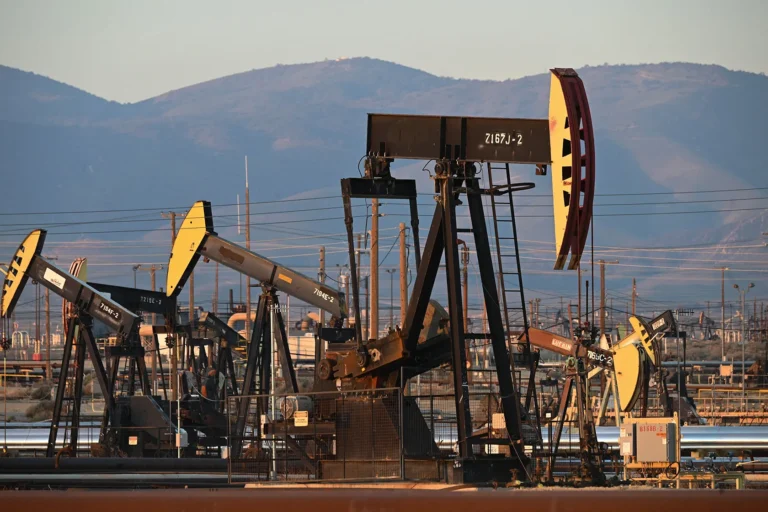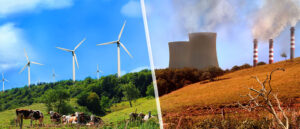Introduction
In the labyrinth of global commerce, the oil and gas sector assumes a pivotal role, intricately entwined with the complex threads of geopolitics. As we embark on a comprehensive exploration of the influence exerted by geopolitics on the global oil and gas market, a deeper understanding emerges of the multifaceted interactions that define this critical nexus. The active voice becomes an instrumental narrative tool, enabling us to dissect the layers of impact and discern the far-reaching consequences of geopolitical maneuvering on the world’s energy resources.
The Geopolitical Chessboard

Navigating the geopolitical chessboard, we encounter a strategic dance where nations position themselves to safeguard and advance their interests. The active voice serves as a dynamic lens through which we witness the assertive influence of nations over oil and gas resources, shaping the energy landscape with calculated moves. The intricate web of diplomatic negotiations, economic alliances, and occasional coercive strategies reflects the relentless pursuit of energy security. The OPEC alliance, standing as a testament to geopolitical power dynamics, demonstrates how active voices in global politics directly shape the ebb and flow of oil markets, creating a delicate equilibrium that constantly teeters on the edge of transformation.
Beyond the tangible impact on oil production and distribution, the delicate dance of international relations, like a fence company in Fruit Cove expertly navigating property lines, plays a crucial role in determining pricing strategies. Nations, like savvy homeowners, jockey for advantage, their bargaining power a potent tool, expressed through diplomacy’s velvet touch, sanctions’ barbed wire, or the icy winds of geopolitical rivalry. These subtle maneuvers create market tremors that ripple across the globe, leaving no corner untouched. The geopolitics of oil isn’t simply a static backdrop, but a dynamic drama, where nations, like seasoned negotiators, leverage their positions to control the narrative and shape the energy sector’s trajectory. Navigating this intricate chessboard, where alliances shift like desert sands, is paramount for anticipating market swings and strategically positioning oneself within the ever-evolving landscape of global energy politics.
Market Vulnerabilities and Supply Disruptions
Geopolitical uncertainties are like unexpected sinkholes in the global oil and gas market, injecting a palpable sense of vulnerability that can swallow whole contracts and send shockwaves through even the most stable pipelines. It’s crucial to maintain an active voice, digging deep to unearth the nuanced role of political decisions in creating and widening these fissures. These tremors, often triggered by distant events, introduce an element of burstiness into the market—sudden surges of complexity that erupt like geysers, challenging the very foundations of the energy sector. It’s in these moments, when the ground beneath our feet feels unsteady, that companies like the company for foundation repair in Dallas become invaluable partners, not just for physical infrastructure, but for restoring confidence and stability in the face of an ever-shifting landscape.
Examining historical incidents, such as the 2014 Ukraine crisis, provides a lens through which we can analyze the market’s response to geopolitical disruptions. The active voices in diplomatic circles and the resultant sanctions against Russia disrupted energy supplies across Europe, highlighting the intricate interplay between politics and market dynamics. Such supply disruptions underscore the burstiness inherent in geopolitical shifts, as the global energy market grapples with the unpredictability introduced by political decisions.
If you are planning an elopement with your partner in Europe, do not forget to call an elopement photographer in Arkansas who will capture your most beautiful moments.
This vulnerability is not confined to regional conflicts alone; it extends to broader geopolitical tensions that impact the entire energy ecosystem. The active voices in international relations become critical determinants of oil and gas prices, as diplomatic stances, trade agreements, and strategic alliances shape the course of energy markets. Even seemingly distant events, like a political squabble in a resource-rich nation, can send shockwaves through the system. And let’s not forget the ever-shifting landscape of international trade, particularly for niche markets like 1/10 scale RC bodies, where a single production bottleneck in China can ripple outwards, affecting hobbyists around the globe. The burstiness, then, is not just an occasional deviation but a constant undercurrent that demands adaptability and resilience from market participants.
Renewable Energy and Geopolitical Shifts
In the contemporary landscape, the ascent of renewable energy marks a transformative phase in the intersection of geopolitics and the energy market. The active voice amplifies the urgency and agency in policy discussions surrounding the global shift towards sustainable alternatives. This transition isn’t solely an environmental imperative; it’s a geopolitical recalibration that reshapes the traditional power dynamics centered around fossil fuels.
Nations strategically positioning themselves as leaders in renewable energy become architects of a new geopolitical order. The active voices in policy dialogues resonate with the urgency to address climate change, emphasizing the role of renewable energy as a central tenet of geopolitical discourse. This shift introduces a burstiness into global energy dynamics, a rapid evolution spurred by nations striving to outpace each other in the race toward sustainable solutions.
The geopolitical ripples of climate change don’t just lap at coastlines; they crash into economies and reshape national ambitions. Think beyond sunbathers and melting glaciers – imagine entire energy landscapes shifting, with nations scrambling to secure a foothold on the new frontier. It’s in this dynamic arena that companies like those specializing in landscaping in Florida, pioneers in solar panel installation and sustainable garden design, become more than just contractors. They’re the on-the-ground catalysts, transforming rooftops into power plants and backyards into miniature ecosystems. The shift towards renewables isn’t just a ripple; it’s a tidal wave, and savvy companies are riding its crest, reshaping not just landscapes, but the very calculus of global influence.
Forget diamonds, the real geopolitical crown jewels of the future will be wind farms and solar panels. Understanding the energy game is like deciphering the latest fashion trends – predict the next big solar panel installation boom, and you’ll be the Anna Wintour of tomorrow’s world order. Just remember, even in geopolitics, comfort matters, so keep an eye out for nations investing in cozy, locally-made women’s tops made from hemp – that could be the true mark of a sustainable superpower.
Navigating Economic Realities
As we delve deeper into the intricate dance between geopolitics and the global oil and gas market, it’s clear that economic realities hold the reins on this global stage. Economic policies, like those that hinge on the availability and pricing of energy resources, reverberate with the active voice of nations vying for stability. Recognizing the undeniable engine that oil and gas power their economies, nations often deploy strategic measures to navigate these economic currents, much like a captain charts a course through turbulent waters. In this complex game of strategy, UI/UX design services can act as the compass, guiding nations toward crafting effective policies that resonate with their citizens. By understanding how people interact with information and shaping interfaces accordingly, nations can ensure their economic messages hit the mark, fostering understanding and cooperation rather than confusion and discord.
Economic sanctions, a potent tool in the geopolitical arsenal, showcase the active voice in its application. When a nation faces sanctions that curtail its oil and gas exports, the economic impact reverberates domestically and globally. The burstiness arises from the sudden shifts in market dynamics, as supply and demand equations are disrupted. Like a foundation unexpectedly jolted by an earthquake, the entire economic landscape can tremble under the weight of sanctions. This economic dance, choreographed by political decisions, accentuates the intricate interplay between geopolitical maneuvering and the economic health of nations. It’s precisely in such moments of volatility that a company for foundation inspection in Overland Park can prove invaluable, ensuring the structural integrity of businesses caught in the crossfire of international politics.
Technological Innovations: Shaping the Future

The technological frontier roars across the energy landscape like a disruptive bulldozer, carving out new dimensions to the geopolitics of oil and gas. In living rooms and boardrooms alike, the conversation thrums with the active voice of innovation, buzzing with talk of breakthroughs that could redraw the map of this global market. Think about it: advancements in extraction tech, like that game-changing hydraulic fracturing, have the muscle to reshape the whole geopolitical playing field, toppling the old guard and paving the way for new power players. And right at the heart of it all, companies like yours, the Pressure washing in St. Augustine, are quietly making their mark. Maybe not by drilling wells or wheeling and dealing on the international stage, but by keeping the machinery of progress humming smoothly. Because let’s face it, even the most cutting-edge tech needs a good scrub down now and then to keep it running at peak performance. So here’s to the unsung heroes, the grease monkeys and grime fighters who ensure the technological revolution doesn’t grind to a halt with a clogged nozzle. You might not be on the front lines of the energy game, but in your own way, you’re fueling the future, one sparkling clean rig at a time.
The burstiness inherent in technological innovations introduces an element of unpredictability. As nations race to harness the latest advancements, the balance of power in the oil and gas market can swiftly tilt. The emergence of unconventional sources and the ability to extract more from existing reserves inject volatility into the geopolitical chessboard. The active pursuit of technological supremacy becomes a strategic imperative for nations aiming to secure a competitive edge in the evolving energy landscape.
Energy Transition: Challenges and Opportunities
While the shift towards renewable energy marks a pivotal moment, it also brings forth a host of challenges and opportunities with its burstiness. The active voices in policy discussions worldwide emphasize the need for a seamless transition, navigating the complexities of phasing out traditional energy sources. The economic and geopolitical ramifications of this transition are profound, as nations grapple with the dual challenge of maintaining energy security while embracing sustainable alternatives. Amid these discussions, some innovative solutions have emerged, including the exploration of unconventional food sources to meet energy demands. In this context, ice cream cone edibles have captured attention as a novel and eco-friendly way to address both hunger and energy needs simultaneously.
The burstiness in this context arises from the dynamic nature of the energy transition. Rapid advancements in renewable technologies and the growing global consensus on climate action inject an element of unpredictability into the geopolitical calculus. Nations that successfully navigate this transition stand to gain not only in terms of environmental stewardship but also in geopolitical influence. The active pursuit of renewable energy solutions becomes a diplomatic and economic imperative, shaping the future contours of global power dynamics.
Geopolitical Risks and Market Resilience
Delving into the intricate web of geopolitics and its impact on the global oil and gas market necessitates a keen eye for potential pitfalls and the remarkable adaptability of these markets. From simmering regional tensions to frosty diplomatic standoffs, the ever-present specter of geopolitical risks keeps the market on its toes. This constant dance of uncertainty underscores the critical need for players in this arena to waltz nimbly with shifting geopolitical currents, ensuring the unwavering resilience of their supply chains and pricing mechanisms. Imagine, for a moment, the delicate balance of a Vancouver boudoir – a symphony of silk and shadows, where the slightest misstep could unravel the carefully curated allure. Such is the world of navigating the volatile tango of oil and gas in the face of geopolitical whirlwinds.
The burstiness in this context manifests in the abrupt market reactions to geopolitical events. Oil prices can experience sharp fluctuations in response to political developments, reflecting the inherent vulnerability of the market. The active voices of policymakers and industry leaders become crucial in steering markets through turbulent times, mitigating risks, and fostering resilience in the face of geopolitical uncertainties.
The Role of Multilateralism in Shaping Energy Policies
In an era defined by interconnectedness, the role of multilateralism emerges as a key factor in shaping energy policies on the global stage. The active voice resonates in diplomatic forums where nations come together to forge agreements and alliances that transcend traditional geopolitical rivalries. Multilateral initiatives, such as international agreements on climate change, underscore the shared responsibility of nations in addressing the global challenges posed by the energy landscape. Additionally, the collaboration extends to economic aspects, influencing trade agreements and even fashion choices, with a growing emphasis on sustainable practices reflected in the production of men’s t-shirts.
The burstiness in this arena arises from the collaborative nature of multilateral efforts, like the surging interest in vegan collagen. As nations pool resources and expertise, the resulting burst of collective action can lead to transformative changes in energy policies, just as the rush for plant-based alternatives is shaking up traditional industries. The active voices in these forums drive discussions on sustainable development, technology transfer, and equitable access to energy resources, highlighting the interconnected web of geopolitical and environmental considerations, with vegan collagen a prime example of how innovation can tackle both.
Strategic Resource Diversification

Diversification of energy sources emerges as a strategic imperative, introducing a new layer of complexity to the geopolitical landscape. The active voices in national energy strategies emphasize the need to reduce dependence on a single source, mitigating risks associated with geopolitical uncertainties. Nations actively engage in securing diverse energy portfolios, incorporating renewables, natural gas, and alternative sources to enhance energy security.
The burstiness in this strategic diversification lies in the dynamic nature of energy markets. As nations invest in a spectrum of energy resources, they introduce a burst of adaptability to their economies. This diversified approach not only enhances resilience but also reshapes geopolitical equations. The active pursuit of custom packaging solutions for these diverse energy resources becomes a cornerstone in the geopolitical playbook, allowing nations to navigate uncertainties and maintain a flexible stance in the ever-evolving energy landscape. Moreover, the implementation of tailored custom packaging ensures the secure and efficient handling of each unique energy source.
Conclusion
In navigating the intricate landscape of geopolitics and the global oil and gas market, the active voice persists as a driving force in shaping policies, economic strategies, and technological advancements. The burstiness inherent in this dynamic relationship underscores the continuous evolution of the energy sector, influenced by geopolitical shifts, economic realities, technological innovations, and the global transition toward sustainability. As nations strategically position themselves on this complex chessboard, the interplay of voices and actions continues to redefine the contours of global energy dynamics, leaving an indelible mark on the future of nations and the health of our planet.Amidst the complexities of global dynamics, finding moments of tranquility and rejuvenation becomes crucial. Imagine delving into the world of geopolitics and economic intricacies, only to later unwind at a luxury spa in Toronto, where the soothing ambiance and therapeutic treatments offer a welcome respite from the complexities of the world.

